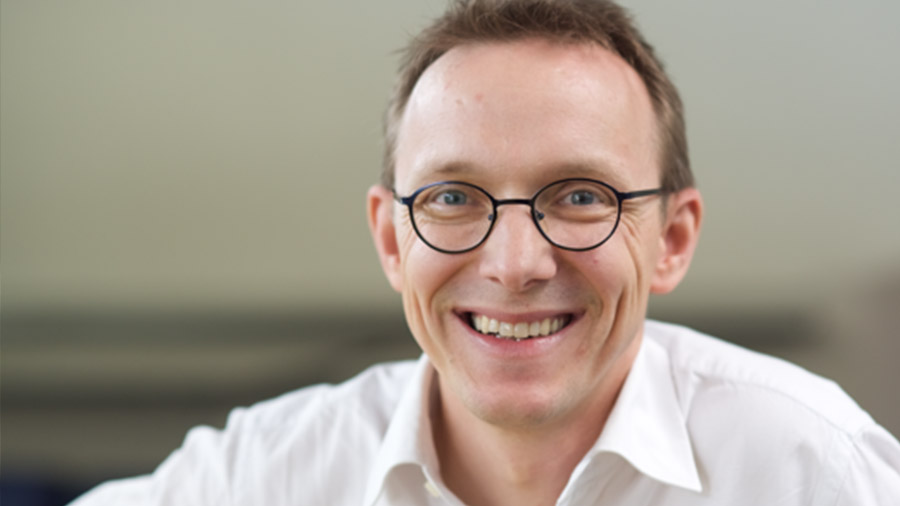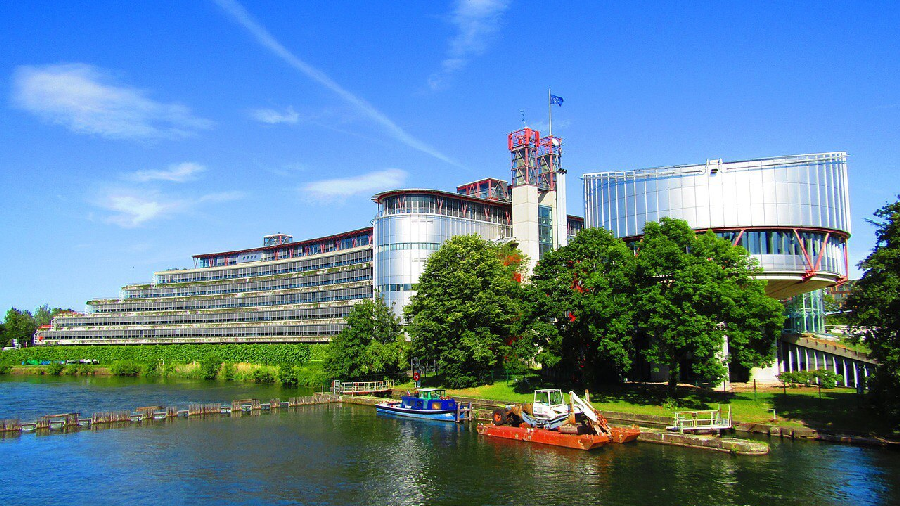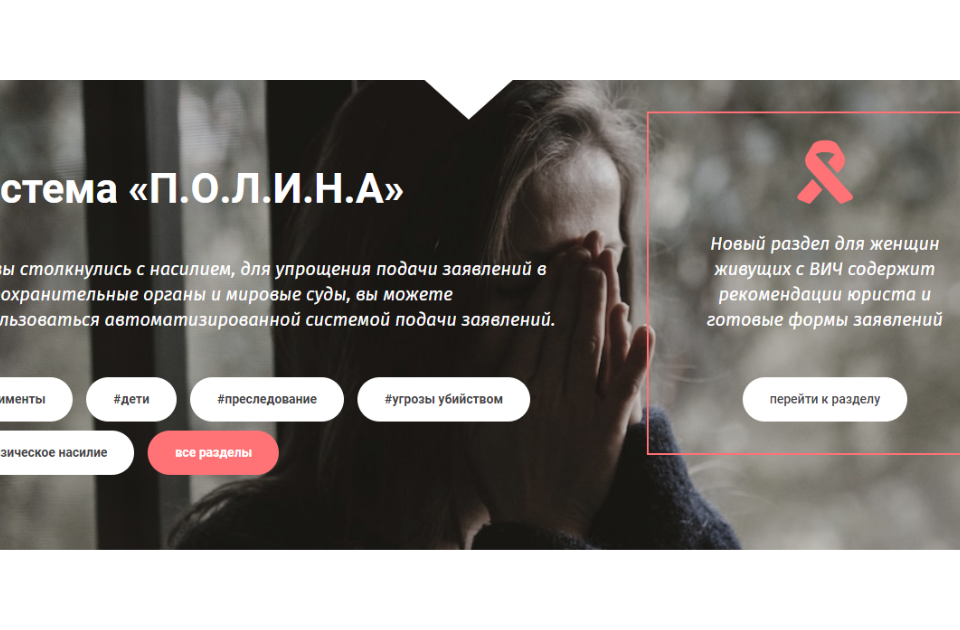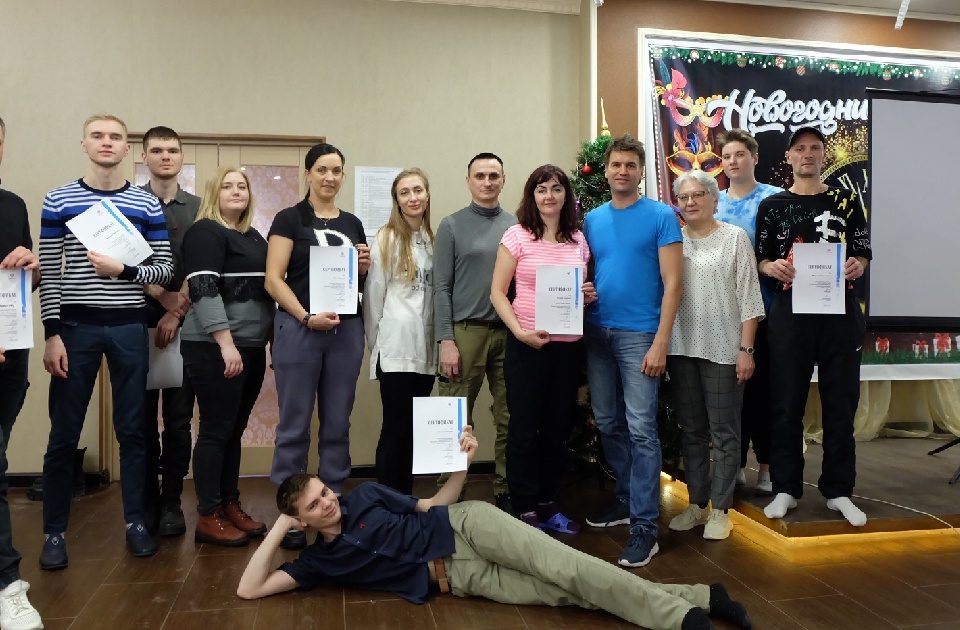Assistance to Refugees and Migrants in Legal Clinics of the Russian Federation
![]()
Interview with Ulrich Stege, coordinator of the Human Rights and Migration Law Clinic in Turin (Italy)

Ulrich, what is so special about the law clinic in Turin?
We were one of the first clinics in Italy, together with Roma III in Rome and Brescia. These three clinics continue to be the core elements of clinical practice in Italy. There was a certain interest from the university college in Turin – a small private institution of higher education where I am based – to integrate clinical education in their international MA program where about 25-30 students from different areas of the world such as Eastern Europe, Africa, Asia and Latin America study together.
Right from the beginning, our college’s idea was not to teach law in a very classical way, but to take a multidisciplinary approach, integrating perspectives from political science and economics. We try to teach law in context, namely not looking at the books so much, but seeing how legal aspects are expressed in people’s lives. And since it is a highly international and comparative MA program, we wanted to look at the international rules, policies and regulations which have developed in the last years in economic areas. We wanted to strongly criticize the capitalist system, particularly the introduction of nationalistic laws which have influenced local policies so much– a sort of critique of globalization. We need to look closely at one of the most frightening outcomes of globalization, which is the increasing numbers of migrants and refugees. That is why we established our clinic on Human Rights and Migration Law in 2010.
And how did you start?
From the very beginning, we were supported by this small private university which encouraged us to set up the clinic. Right from the start, my college, the ICT, invited us to look at good practices and find successful examples. So I traveled a bit in Europe in search of such examples, which also helped me gain some useful contacts. In particular, I visited clinics in Poland, Germany and Spain, as well as in France, and collected many positive and useful tips which I later implemented through the process of establishing the clinic in Turin, within the specific context of Italy.
So you have received a lot of support from your college…
The college created my position and also, to some extent, hired another lawyer who works with me on coordination, but also on the individual supervision of the students. So it is basically the two of us, both hired by the university, who make this clinic happen. We also immediately implemented a clinic in a more regional sense, namely we also included from the beginning students from other institutions in Turin, more specifically from a public university of Turin and the University of Alessandria. This means that we always have students from 3 types of institutions: from my private college which has mostly international students and from two other places where mostly Italian students study. This was very helpful, because it meant we could reach out for some cooperation from other actors in the field. So the clinic consists not only of me and my fellow Italian lawyer, since we reach out and cooperate with other colleagues from two other partner institutions.
Do all the 25-30 MA students that you mentioned a few moments ago have to take part in this law clinic or do they have other options?
Not all the 25-30 MA students have to take the clinic. It is a voluntary course which they can choose to take. In recent years we have had around 15 MA students who choose to participate in the clinic. But we have around 30 students participating in the clinic each year, with the rest of the students coming from public universities in Turin. It actually creates a certain problem, having both Italian and international students, but it also creates a nice clash and mutual benefits –for example, the Italian students help with the legal terms in Italian. Usually, our clinic works from January until July, with a break between August and December, when we usually do not have any curriculum students. However, the demand was so strong that we decided to expand the law clinic so that it runs the whole year, attracting non-curriculum students who volunteer to help the refugees as part of the clinic. It worked quite well, so we have a number of volunteer students who help to cover us for the entire year.
Do you offer any preparation courses in your clinic?
We structured our clinic in such a way that we have a two-month preparation period where we offer classes on migration and asylum law, which are designed as very clinical classes with interactive simulations, etc. We also integrate some skills development like interview training, making it a complex process of preparation that allows the students work on real cases. Often we hear that students like this preparatory course quite a lot, because it gives them a solid background regarding migration law which is not a field of law often taught at law schools in Europe or anywhere else.
And after two months of preparations the students start to work with the clients?
After these 2 months of preparations, we do 4-5 months of practical activities where students are involved in one or two kinds of activities. We usually offer between 4 to 6 different clinical paths which are all linked to migration. One important element is the refugee law clinic section, where students work on preparing asylum seekers for their interviews at the special commission.
How do the students work?
The students usually work in teams. For two years we have been adding an anthropology student to a team of two law students, what makes it a very interesting experience. The law students are confronted with different kinds of people and anthropology students add from their knowledge regarding the different cultural backgrounds of refugees coming from various places in the world. This combination proved to be quite useful, at least from a practical perspective.
This working format seems to be quite unique. How did you come with this idea of involving anthropology students?
We have been organizing a training course together with a well-known anthropologist and an expert in refugees. She has even established a special psychological centre for refugees, where they do very important and useful work. This centre helps us during our preparation course, explaining how to carry out an interview with a refugee who has reached Italy after a very difficult and traumatizing journey. Most people reaching Italy come by boat and many will have witnessed people dying on the way. The institution also has an MA program and a special course on anthropology focusing on refugees, and they asked us if we wanted to cooperate with them and invite anthropology students to be involved in the interviewing of the refugees. That’s how we started our collaborative work. And it proved to be very interesting. The anthropologists are doing their supervision and we are doing our legal supervision, so it is basically a two-sided supervision. And they are very different, as you can imagine. We are dealing with very practical issues, procedural issues and other legal nuances, and anthropologists have a very different approach and are actually very scared of the legal aspects, when you have only one definition of the term “refugee” and everyone needs to meet it or not. They look at a person as a person, first of all, and not through a narrow prism of definitions. So this symbiosis is very interesting and the law students learn a lot, especially how harmful can it be to see the person only through a legal definition and gather information from a person which can only fit this narrow definition. For anthropology students this experience is also quite interesting and special, because they all come from this wide idealistic approach of “we are all human beings”, they have neither the tools nor the ideas for putting this in a very concrete setting. I can say that this cooperation is very interesting useful and we are learning from it all the time!
How do you ensure the quality of consultations provided in your clinic?
Each team is supervised by a pro bono lawyer who is an expert in this field. The lawyer is usually there at the very beginning, during the first 1-2 interviews with a client, and the very end. They are not involved actively in the process in-between, but will oversee all the written statements prepared by the students. So it is actually an individual supervision. This is the refugee law part of the clinic which attracts most of the students.
A practical question: how do you deal with all the language problems between the clients and the students?
We are quite lucky in the sense that we have a lot of international students. We have Afghan and Pakistani refugees, so a group might have a student who happens to speak Urdu or another useful language, so they can help with translations. The same goes for African languages. Sometimes we don’t have students who speak “exotic” languages; in this case, we try to use local mediators, but this is not ideal, of course. In all legal clinics working with refugees there is, to some extent, a language barrier and some helpful tools have been developed. In Leipzig, for instance, the law clinics identified this problem and initiated training for mediators and translators specifically for work with refugees. We are not yet there, but I think it would be good if we could launch a similar a program in the future. Usually these are “handmade” solutions that we are trying to find using our own resources, but sometimes it works, and sometimes it doesn’t. In the mixed student teams (international and Italian) the working language is always English. There is of course still a language issue, because the claims and the memos have to be written in Italian, since we need to send these documents to the local authorities at the end of the process. In the teams they can agree that first they write everything in English and then the Italian students translate into Italian. In other teams they can agree to write in Italian from the beginning, especially if the international students in this group know some Italian. So it depends on a particular situation, but in general, it is an important issue to be considered in the teams.
How do the clients find you?
There are three ways clients reach us. Firstly, we have a general e-mail address for people to write to us and arrange an appointment, although it hasn’t been used very often so far. Secondly, we cooperate with various reception centers and we ask them to send us those clients who might have more serious problems when applying for a status. So we often work with those vulnerable clients who are identified by the reception centers. This is actually the easiest way to get clients. We also work with victims of human trafficking, and in this case the clients are sent by the NGOs which work in this field. Our main work is to prepare them for legal claims. Another activity is administrative detention. In this area we accept 4 to 5 students who go to the detention centers and identify issues of human rights via interviews with people.
Last but not least, since last year we accept not only clients who are sent to us by the reception centers; we have also signed an agreement with the local prison where migrants are sometimes held under criminal charges – some of them lack documents of any kind, but still have the possibility to claim asylum. Before our intervention, there was no way to file for asylum while being held in a prison. There was not even an administrative possibility. We have developed a system with local authorities and prisons where students will prepare the claims and bring the local authorities into contact with asylum commissions so the claim can be prepared while being in prison.
This is interesting. How did the cooperation with prisons emerge?
This cooperation started very interestingly. We organized a workshop on refugees’ rights for the prison staff. We wanted to make them realize that certain migrants or foreigners might have the possibility of claiming asylum. And if that occurs to them, they should send us a note and then a student from the clinic will come and check by carrying out a brief interview to establish whether or not there is a basis for such a claim, and if there is, this person becomes our client. We have a signed agreement with a prison, according to which those students who are involved in particular cases with prison clients shall have access to the prison. Usually they get a special authorization for about 3-4 months, which is enough time to meet the client and study the case.
So one could claim that your main criteria for selecting the cases is first of all the vulnerability of the group and then strategic value. Is this correct?
In general, yes. I should stress that we offer between 4 to 6 activities per year and our clinic is the biggest portion – most of our students will attend this clinic. But we also have an activity called “strategic litigation” where we usually accept 4 to 6 students who work on developing strategies. And here our focus is on getting specific cases, so we work with an experienced lawyer and some NGOs in the field of migration, and usually we support the lawyers in their work on strategic litigation cases. For example, we were involved in cases which were taken to the European Court on Human Rights and to the Human Rights Committee in Geneva. Last year we had a case on the deportation of Sudanese refugees back to their country, which was based on a memorandum of understanding between Italy and Sudan, and the lawyer asked us to prepare a legal analysis of this memorandum which was essentially the foundation of this lawsuit. So we published a report on the illegality of this memorandum of understanding which was used by the lawyer in court. This year we expect further cooperation, as the court found this lawsuit admissible. In Italy we have a lot of private lawyers who represent clients in the field of migration and refugee law, work that, in particular, involves preparing appeals to the court against the decision of a commission not to recognize someone as an “asylum seeker” or a “refugee”. We specialize mostly in preparing an asylum seeker prior to his appearance before the authorities, because in this area they do not get any help.
You mentioned that you also work with NGOs…
Yes. We work quite a lot with ASG, an association of lawyers in the field of migration law. This cooperation is crucial for us, because all the pro bono lawyers come through the partnership. We also communicate with some trade unions which usually already have a legal aid department where we can get support and assistance. In most of the cases, it is more office and administrative support, than legal support. Of course, as I have mentioned, we are working closely with the reception centers, which are often independent NGOs. PIAM is one example of a well-known local NGO which works in the field of human trafficking, and we cooperate closely with them on this issue.
Is the cooperation with NGOs fruitful?
I think, at least for us, there always has been very good cooperation with other NGOs and clinics. Sometimes it is tricky, of course, but from the very beginning, we thought that we would need to find ways of cooperation where NGOs do not have enough expertise. Here in Turin, luckily, we have a lot of NGOs, including in the field of migration and refugees, so we did not want to just duplicate other activities. Such cooperation in the local level is very important for us.
What would you say are the main challenges in your work?
I would stress two issues. First, it is quite “expensive” work. We provide intensive training to the law students and work with pro bono lawyers. So the individual work with every student is quite time-consuming. We also need to find money for the work we are doing, and it is always not easy. I can say that up to 40% of my job is spent searching for funding from different sources. And it is a lot of work. If I had at least my budget set in advance for the whole year, I could’ve worked much less.
What are your main sources for funding? Who are the main donors for the clinic?
Our major donor is a local bank in Turin which donates a lot of money to different NGOs. It has been funding us since the beginning. They fund the basic structure and the salaries of the staff. We receive less and less money from year to year because of the crisis, but usually we get money from them each year. Sometimes we get public funding from Italian authorities such as the Ministry of Interior, specifically for refugee issues. And we were involved in a European project for which we received European funding. We were funded by the EU to work on citizenship issues, particularly with Romanians and Bulgarians, for example. If I had enough money, I would establish a special fellowship for a former clinical student who would like to continue his or her work in the clinic after the graduation. In the beginning I had money for such a fellowship, and it turned to be very efficient. Unfortunately, I haven’t had enough funds in recent years, and the EC or other donors do not support such ideas.
When you were listing the donors, you didn’t mention the universities. Your partners don’t provide any support except giving you an office and a place to teach?
This support changes every year, because we have new negotiations. But usually they provide funding for some of our work as well. Coming back to the question of challenges: unfortunately, our college has been under political threat. For example, we were among the main criticizers of the big railway construction project which will connect Italy with Turkey via the Alps. This project, if realized, will harm many people and influence the entire railway system in Europe. Because of some corruption links, our college is being threatened with closure.
Are you cooperating with legal clinics in other countries?
For the last two years, we have been increasingly cooperating with other law clinics around Europe on topics of migrant labour and refugees. Students conduct interviews and do some research, and after about 4 months they meet with their counterparts from other law clinics in Europe and discuss the outcomes, their differences and similarities. We have already established contacts with clinics based in Belgium, Germany and Spain.
Are there any other forms of international cooperation?
There are different kinds of coalitions of people working in legal clinics. First of all, there is GAJE (“Global Alliance for Just Education”), which was very influential for me personally. Basically, they only organize one big conference every 2 years, but this kind of program is a very important meeting point for sharing ideas and cooperation. The idea of creating a European Network for Clinical Legal Education (ENCLE) was conceived in 2012 during one of these global conferences. We organize one big event for all the European clinicians and I think it is an important opportunity for all of us to exchange good practices and discuss various difficulties in our work. I think it is very helpful. We also organize training courses with experienced instructors in this field twice a year. We are yet to achieve the goal of having particular standards for a law clinic as well as a clear definition what is a “legal clinic”.
What are you especially proud of with regard to the legal clinic in Turin?
The legal clinic in Turin has a rather complex and unusual structure, but it helps hugely in putting clinical ideas into practice in Turin. Our example serves as a motivation for other public universities to establish legal clinics dealing with other issues, like family law, prisoners’ rights and disabilities issues. These clinics were established in the last 2-3 years at the University of Turin. We were able to influence and assist the founding of these clinics. I do not have a formal position, but de facto I am a sort of principal coordinator for all these clinical activities in Turin.
It sounds like you’ve dedicated most of your life to legal clinics, both on national and international levels. How did this happen?
It happened by a coincidence. By training, I am a lawyer; I even still have my law firm and take cases. This year it is a bit tricky, as I am in South Africa now. When I started to have a link to the International College in Turin, I liked the idea behind this educational institution. They created a community which looks at things in a very critical way and I liked it a lot. When we started to collaborate, the college representatives saw my background in migration law and suggested I start a clinic in Turin, Back then I did not really know what a legal clinic was, so I traveled quite a lot in order to learn from others’ experience. And then I built the clinic from different pieces I have collected. For me, starting a clinic was an ideal match! Academic teaching meets with practical issues – that’s something I love very much. So since then I‘ve become completely addicted to this field.
Thank you very much, Ulrich, it was very interesting!


